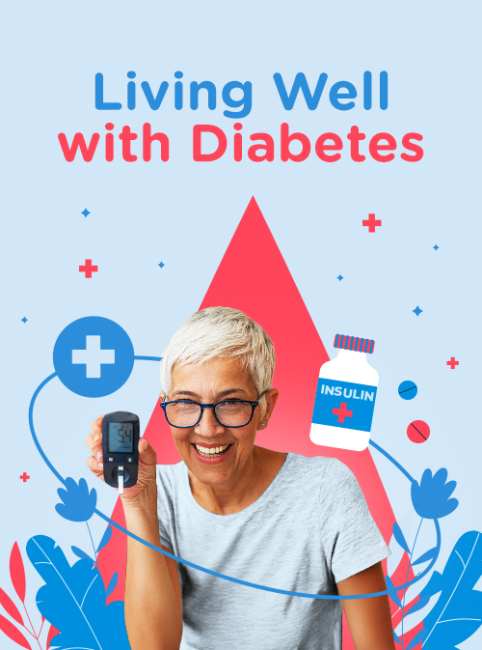Do you love sweets? ‘Yung tipong halos lahat ng paborito mong pagkain ay matatamis. Pero conscious ka when it comes sa pagkonsumo ng sweets dahil sa diet mo. Kaya naman you choose artificial sweetener sa iyong pagkain, dahil matamis rin ito gaya ng asukal at mas kakaunti lamang ang calories nito kumpara sa sugar. In short, kapag kumain ka ng pagkain na may artificial sweetener, malaki ang posibilidad na less ang calories na makukuha mo, at makakatulong ito sa iyong diet.

Ngunit ayon sa bagong pananaliksik na inilathala sa Nature Medicine, ang artificial sweetener, erythritol, ay nauugnay sa lumalalang mga panganib para sa atake sa puso, stroke, at pagkamatay. Kaya ang tanong nang marami ngayon ay kung ligtas ba ang artificial sweetener para sa kalusugan ng tao? Let’s find out!
“The degree of risk was not modest,” according to Dr. Stanley Hazen
Ayon sa mga balita at pag-aaral na nailathala sa Journal Nature Medicine, ang mga taong may existing risk factor para sa sakit sa puso, tulad ng diabetes, ay dalawang beses na malamang na makaranas ng heart attack o stroke kung mayroon silang pinakamataas na lebel ng erythritol sa kanilang dugo.
Batay na rin sa lead study author at direktor ng Center for Cardiovascular Diagnostics and Prevention sa Cleveland Clinic Lerner Research Institute na si Dr. Stanley Hazen, ang degree ng risk ay hindi katamtaman.
“If your blood level of erythritol was in the top 25% compared to the bottom 25%, there was about a two-fold higher risk for heart attack and stroke. It’s on par with the strongest of cardiac risk factors, like diabetes,” pagdaragdag ni Dr. Hazen.
Ligtas ba ang artificial sweetener, erythritol? Here’s the answers from lab and animal research!
Ayon sa CNN News, “Additional lab and animal research presented in the paper revealed that erythritol appeared to be causing blood platelets to clot more readily. Clots can break off and travel to the heart, triggering a heart attack, or to the brain, triggering a stroke.”
Sa madaling sabi, ito ay nakakaalarma batay na rin sa pahayag ng director of cardiovascular prevention and wellness at National Jewish Health na si Dr. Andrew Freeman. Dagdag pa niya, “there appears to be a clotting risk from using erythritol. Obviously, more research is needed, but in an abundance of caution, it might make sense to limit erythritol in your diet for now.”
Artificial sweetener is safe, based on the previous studies
Bilang response sa bagong pag-aaral tungkol sa erythritol, ang industry association na Calorie Control Council ay nagpahayag sa CNN na ang resulta sa bagong study ay contrary sa mga scientific research na ginawa sa mga nakalipas na dekada. Dahil ipinapakita ng mga pag-aaral na ito na ang reduced-calorie sweeteners gaya erythritol ay ligtas, kaya naman mayroon itong global regulatory permissions para magamit sa mga pagkain at inumin. Kung saan ang mga impormasyon na ito ay ipinahayag sa pamamagitan ng email na si Robert Rankin — ang council’s executive director.
Habang ang European Association of Polyol Producers ay nag-decline na magkomento at hindi pa nare-rebyu ang study.
Dagdag pa rito, ayon kay Oliver Jones, isang propesor ng chemistry sa RMIT University sa Victoria, Australia, na ang bagong pag-aaral na ito ay nagsiwalat lamang ng isang ugnayan, hindi sanhi.
Paano nga ba na-discover na hindi ligtas ang erythritol?
“We never expected this. We weren’t even looking for it,” pahayag ni Dr. Hazen. Sapagkat ang pagtuklas ng koneksyon sa pagitan ng erythritol at cardiovascular issues ay hindi sinasadya.
Ang goal ng pananaliksik ni Dr. Hazen ay hanapin lamang ang unknown compounds o kemikal sa dugo ng tao na maaaring mag-predict ng risk ng mga sumusunod:
- atake sa puso
- stroke
- pagkamatay
Para magawa ang pananaliksik na ito nag-analyze sila ng 1,157 blood samples sa mga taong may risk ng sakit sa puso. Kinolekta nila ang mga blood sample, sa pagitan ng 2004 at 2011.
“We found this substance that seemed to play a big role, but we didn’t know what it was, then we discovered it was erythritol, a sweetener,” pahayag ni Dr. Hazen.
Paano kinumpirma na hindi ligtas ang erythritol?
Ayon sa CNN upang makumpirma ang findings, tinest ng team ni Hazen ang isa pang batch ng blood samples mula sa higit sa 2,100 katao sa Estados Unidos at isang karagdagang 833 sample na natipon sa Europa. Humigit-kumulang three-quarters ng mga kalahok ay may coronary disease o mataas na presyon ng dugo, habang ang ibang kalahok ay may diabetes. Dagdag pa ni Hazen, mahigit kalahati ng kalahok ay lalaki at nasa 60s at 70s.
Natuklasan ng mga researcher sa 3 populasyon na ang higher level of erythritol ay konektado sa mas malaking risk ng atake sa puso, stroke o kamatayan sa loob ng tatlong taon. Nadiskubre rin nila sa mga additional lab and animal test na ang erythritol ay sanhi ng clotting sa dugo.
“Our blood vessels are always under pressure, and we spring leaks, and blood platelets are constantly plugging these holes all the time,” pagdaragdag pa ni Dr. Hazen.
Batay na rin sa pagpapaliwanag ni Dr. Hazen ang laki ng clot na ginawa ng platelets ay depende sa laki ng trigger na nagpapasigla sa cell.
“For people who are at risk for clotting, heart attack and stroke — like people with existing cardiac disease or people with diabetes — I think that there’s sufficient data here to say stay away from erythritol until more studies are done,” paalala ni Dr. Hazen.
















